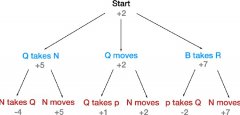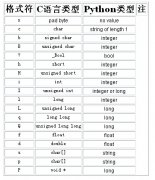Python爬取Coursera课程资源的详细过程(2)
将表单中提交的内容存放在字典中,然后作为data参数传递给Session.post函数。一般情况下,最好是加上请求User-Agent,Referer等请求头部,User-Agent用来模拟浏览器请求,Referer用来告诉服务器我是从referer页面跳转到请求页面的,有时候服务器会检查请求的Referer字段来保证是从固定地址跳到当前请求页的。
上面片段的运行结果很奇怪,显示如下信息:Invalid CSRF Token。后来在github上面搜索到一个Coursera的批量下载脚本,发现人家发送页面请求时headers多了XCSRF2Cookie, XCSRF2Token, XCSRFToken, cookie4个字段。于是又重新看了一下post页面的请求头部,发现确实有这几个字段,估计是服务器端用来做一些限制的。
用浏览器登录了几次,发现XCSRF2Token, XCSRFToken是长度为24的随机字符串,XCSRF2Cookie为"csrf2_token_"加上长度为8的随机字符串。不过一直没搞明白Cookie是怎么求出来的,不过看github上面代码,Cookie似乎只是"csrftoken"和其他三个的组合,试了一下竟然可以。
在原来的代码上添加以下部分就足够了。
def randomString(length):
return ''.join(random.choice(string.letters + string.digits) for i in xrange(length))
XCSRF2Cookie = 'csrf2_token_%s' % ''.join(randomString(8))
XCSRF2Token = ''.join(randomString(24))
XCSRFToken = ''.join(randomString(24))
cookie = "csrftoken=%s; %s=%s" % (XCSRFToken, XCSRF2Cookie, XCSRF2Token)
post_headers = {"User-Agent": user_agent,
"Referer": "https://accounts.coursera.org/signin",
"X-Requested-With": "XMLHttpRequest",
"X-CSRF2-Cookie": XCSRF2Cookie,
"X-CSRF2-Token": XCSRF2Token,
"X-CSRFToken": XCSRFToken,
"Cookie": cookie
}
至此登录功能初步实现。
分析资源链接
登录成功后,我们只需要get到资源页面的内容,然后过滤出自己需要的资源链接就行了。资源页面的地址很简单,为https://class.coursera.org/name/lecture,其中name为课程名称。比如对于课程comnetworks-002,资源页面地址为https://class.coursera.org/comnetworks-002/lecture。
抓取到页面资源后,我们需要分析html文件,这里选择使用BeautifulSoup。BeautifulSoup是一个可以从HTML或XML文件中提取数据的Python库,相当强大。具体使用官网上有很详细的文档,这里不再赘述。在使用BeautifulSoup前,我们还得找出资源链接的规律,方便我们过滤。
其中课程每周的总题目为class=course-item-list-header的div标签下,每周的课程均在class=course-item-list-section-list的ul标签下,每节课程在一个li标签中,课程资源则在li标签中的div标签中。
查看了几门课程之后,发现过滤资源链接的方法很简单,如下:
ppt和ppt资源:用正则表达式匹配链接;字幕资源:找到title="Subtitles (srt)"的标签,取其href属性;视频资源:找到title="Video (MP4)"的标签,取其href属性即可。
字幕和视频也可以用正则表达式过滤,不过用BeautifulSoup根据title属性来匹配,有更好的易读性。而ppt和pdf资源,没有固定的title属性,只好利用正则表达式来匹配。
具体代码如下:
soup = BeautifulSoup(content)
chapter_list = soup.find_all("div", class_="course-item-list-header")
lecture_resource_list = soup.find_all("ul", class_="course-item-list-section-list")
ppt_pattern = re.compile(r'https://[^"]*\.ppt[x]?')
pdf_pattern = re.compile(r'https://[^"]*\.pdf')
for lecture_item, chapter_item in zip(lecture_resource_list, chapter_list):
# weekly title
chapter = chapter_item.h3.text.lstrip()
for lecture in lecture_item:
lecture_name = lecture.a.string.lstrip()
# get resource link
ppt_tag = lecture.find(href=ppt_pattern)
pdf_tag = lecture.find(href=pdf_pattern)
srt_tag = lecture.find(title="Subtitles (srt)")
mp4_tag = lecture.find(title="Video (MP4)")
print ppt_tag["href"], pdf_tag["href"]
print srt_tag["href"], mp4_tag["href"]下载资源






